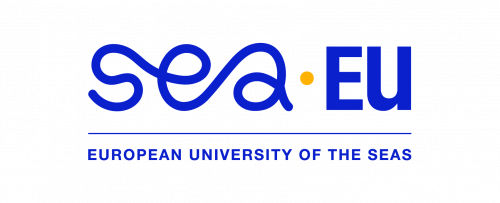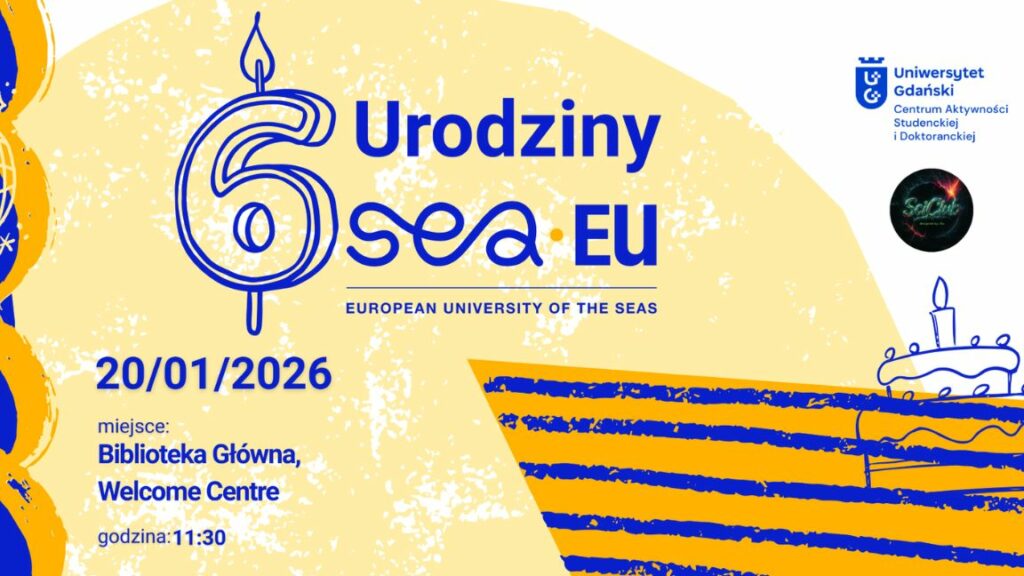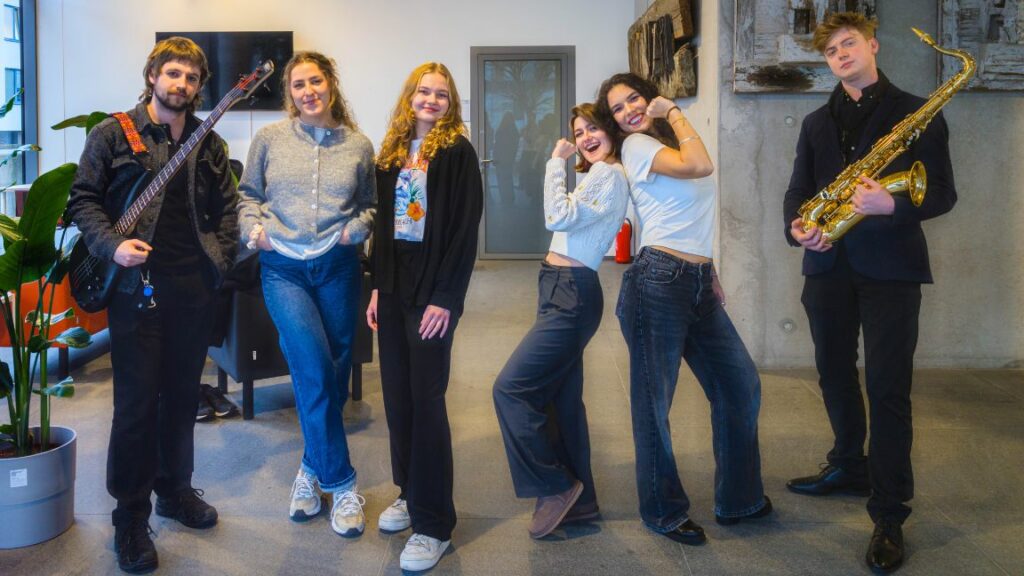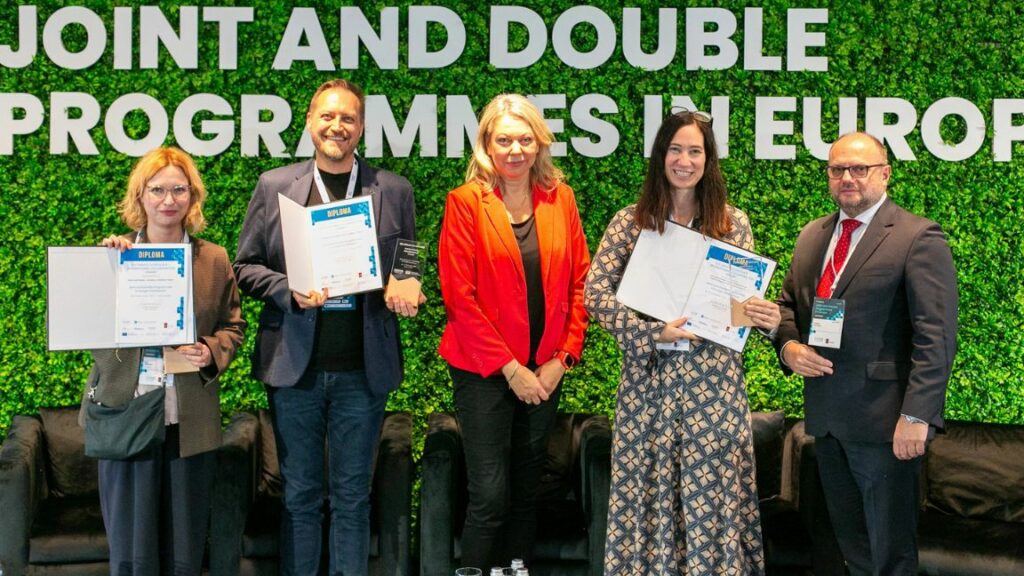Recruitment rules for International Mobility within the SEA-nergy Project
BASIC INFORMATION
Name
UCA International Summer School – Building Smart Web Apps with AI course
Objective
The goal of the course is to introduce participants to the topic of artificial intelligence, specifically LLM (Large Language Models), and their applications in the creation of modern web applications. Participants will develop practical programming skills in Java and Vaadin and learn how to integrate AI using Langchain4j, combining theoretical knowledge with project work.
Destination and duration of mobility
The international mobility will be conducted at SEA-EU’s partner university, University of Cádiz from July 7th to July 11th, 2025.
Detailed program
https://internacional.uca.es/wp-content/uploads/2025/03/ISC-08-Course-Content-and-Schedule.pdf
Set of learning outcomes (competencies):
- Application of artificial intelligence in the development of modern web applications.
- Ability to design and develop a web application using Java and the Vaadin framework, integrating it with AI models through Langchain4j, and applying techniques such as prompt engineering and Retrieval-Augmented Generation.
- Awareness of the ethical aspects of integrating AI into user applications.
Learning outcomes:
- Knowledge:
The candidate:
1.1 Understands basic concepts and operating mechanisms of AI and LLMs.
1.2 Understands the architecture of modern web applications.
1.3 Is familiar with LLM integration techniques and the principles of prompt engineering. - Skills:
The candidate:
2.1. Is able to develop a web application using AI.
2.2. Is able to integrate an LLM with an application and handle interactions.
2.3. Applies advanced techniques (prompt engineering, RAG). - Social competencies:
The candidate:
3.1. Responsibly applies AI in projects.
3.2. Collaborates and shares knowledge.
3.3. Respects ethics and the diversity of approaches.
Criteria for assessing learning outcomes:
The candidate:
| Learning outcome | Verification criteria | Form of verification |
| 1.1. Understands basic concepts and operating mechanisms of AI and LLMs | 1.1.1. Explains key concepts related to AI and LLMs 1.1.2. Describes the capabilities and limitations of LLMs in the context of web applications | Test |
| 1.2. Understands the architecture of modern web applications | 1.2.1. Describes the main components of applications built with Java + Vaadin | Test |
| 1.3. Is familiar with LLM integration techniques and the principles of prompt engineering | 1.3.1. Identifies applications of tools like Langchain4j 1.3.2. Describes the mechanisms of RAG and prompt design | Test |
| 2.1. Is able to develop a web application using AI | 2.1.1. Builds a functional application based on Vaadin components and LLM 2.1.2. Implements at least one AI-supported feature | Test |
| 2.2. Is able to integrate an LLM with an application and handle interactions Umie zintegrować LLM z aplikacją i obsłużyć interakcje | 2.2.1. Correctly implements communication with the model 2.2.2. Handles user and model input/output data | Test |
| 2.3. Applies advanced techniques (prompt engineering, RAG) | 2.3.1. Implements effective queries to the AI model 2.3.2. Applies the RAG technique in practice | Test |
| 3.1. Responsibly applies AI in projects | 3.1.1. Identifies ethical risks and proposes ways to mitigate them 3.1.2. Considers privacy and transparency in applications | Test |
| 3.2. Collaborates and shares knowledge | 3.2.1. Actively participates in group tasks and discussions 3.2.2. Presents the results of the work | Test |
| 3.3. Respects ethics and the diversity of approaches | 3.3.1. Takes into account the diverse needs of end usersych 3.3.2 Implements solutions in accordance with best practices | Test |
REQUIREMENTS FOR MOBILITY
Participants of the mobility
To apply for the mobility, candidate must be an active student of the University of Gdańsk on the day of applying for the recruitment process and the planned mobility. Applicants are not allowed to be on any type of leave.
The participant’s declared English language level is a minimum of B1.
Recruitment
All candidates are required to complete a special registration form at https://forms.office.com/e/vRGbePtjSb. One of the elements of the application form is a cover letter justifying the choice of mobility which should raise the candidate’s competence. The form must be completed and submitted by May 14th, 2025.
The order of funding allocation depends on the total number of points obtained – applications with a higher total score will have priority in funding allocation and will be processed according to the ranking list. Those who have submitted a complete set of required documents and meet the mobility requirements may be qualified to participate in the mobility. Funds for this purpose are allocated for one person.
Recruitment is conducted in accordance with the horizontal principles outlined in § 2 point 8 of the Project Regultions. If support is needed during the recruitment process for persons with disabilities or special needs, please contact the task coordinator seaenergy@ug.edu.pl.
Recruitment criteria
| 1 | Formal criteria | Fulfilled |
| student status | ||
| required English level – minimum B1 | ||
| experience with Java programming | ||
| complete application | ||
| Substantive criteria | Scoring | |
| 2 | the substantive evaluation of the motivation letter justifying the choice of mobility, which should aim to enhance competencies | 0-5 |
| 3 | alignment of the thematic scope of mobility with the pursued field of study | 0-5 |
| 4 | alignment of the thematic scope of mobility with the written or ongoing thesis in the completed/current field of study | 0-5 |
Recruitment results
The committee responsible for verifying and evaluating the applications is required to prepare a ranking list, dividing it into the list of qualified candidates, reserve candidates, and those who do not meet the criteria. All candidates participating in the recruitment process will be individually informed about the results via email by May 16th, 2025. The list of selected candidates will also be available on the website https://sea-eu.ug.edu.pl/aktualnosci/.
RULES FOR PROVIDING SUPPORT
Funding may be granted for the implementation of the mobility between 7 and 11 July 2025, plus two days for travel. The funding is paid as a lump sum of approximately 6325 PLN and covers travel, accommodation, and per diem expenses. Detailed list of funding rates is available on the website.
Documentation before mobility Those who are qualified for mobility are required to complete the following:
- an online pre-test which will assess the participants’ knowledge and skills related to the course content before starting the course,
- registration on the NAWA platform to confirm the participant’s eligibility for the project,
Documentation after mobility Those who complete the mobility are required to:
- complete an online post-test which measures the participants’ knowledge and skills after the course,
- provide the original certificate of stay at the partner university.
Completion of mobility
Those who according to the test have improved their competencies during the mobility will receive a certificate.
The verification of learning outcomes includes completing a post-test, in which the participant should achieve a higher score compared to the pre-test in order to receive a certificate of competence enhancement. Both tests are completed remotely via the Microsoft Forms application.
Contact to Coordinator: seaenergy@ug.edu.pl
The initiative is being implemented as part of the project „Support for Synergistic and Complementary Actions of the SEA-EU 2.0 Project – SEA-nergy,” which is part of the NAWA program „Support for European University Alliances” funded by the European Social Fund




